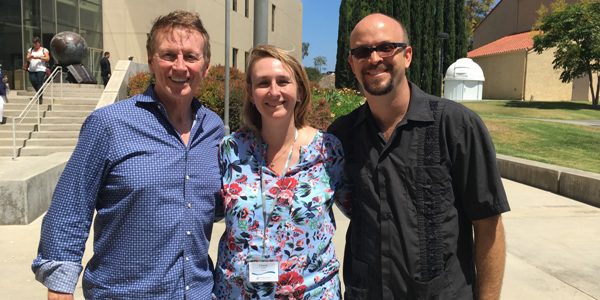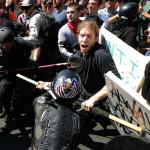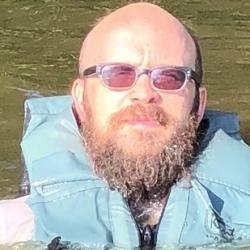
[Content Note: childhood sexual trauma] Sometimes my personal life is out of step with the national narrative. Earlier this week, my wife Cheryl and I were at an in-person kickoff to our three year online counseling program with Dr. John Townsend, co-author of the book Boundaries, a 25-year old groundbreaking text in the movement that today we call “self-care.” It’s a book about “setting boundaries” (a phrase we wouldn’t otherwise use today), which means saying no without guilt, owning what’s yours, and disowning what isn’t. Millions of people have been liberated from toxic relationships and systems by reading it. And Dr. Townsend happens to be a conservative evangelical Christian who is the opposite of toxic.
He probably wouldn’t label himself that way. All I mean is that he quotes the Bible frequently and he uses some conservative evangelical doctrine matter-of-factly. But he doesn’t weaponize scripture. He doesn’t use fear and shame to establish control over the people he’s teaching. He isn’t patronizing or self-aggrandizing. He empowers and amplifies female leadership. He publicly apologizes when he thinks he’s mistreated a student. And the psychological model that he builds from his theology is utterly unlike the patriarchal, performative spaces I’ve encountered and presumed to be ubiquitous in conservative evangelicalism.
Townsend’s approach to psychotherapy is based on getting in touch with your emotions and repairing the wounded parts of your character. His “growth” model has four components: attachment, separation, integration, and adulthood. Attachment is our ability to connect to others emotionally and access our own emotions. Separation refers to our ability to establish our own identity. Integration means we are able to face both the good and the bad parts of our story. Adulthood signifies our ability to grab hold of our vocation and have a healthy understanding of authority.
But what’s way more significant than the theory is the methodology. We split into process groups where facilitators led us through activities that were designed to draw our emotions out and give us a safe, grace-filled container to process rage, grief, and other dysfunctional aspects of our character so that we could both gain experiential clinical knowledge and address our unprocessed baggage before trying to counsel other people.
These spaces were not prim and proper at all. There were no orthodoxy police. The F-bombs flew freely. Not a single Jesus juke was deployed. Any sort of fake, minimizing, intellectualizing conversation was interrupted and deconstructed. We were encouraged to practice being contentious and calling each other out but always with the premise that we were fiercely on each other’s side. I bonded with the four women in my group more tightly in three days than I have with many clergy colleagues and seminary classmates I’ve known for years.
And part of what happened in the explosiveness of that space was that I faced my abuser. I’ve blogged about him before: Ralph Mills, my seventh grade Sunday school teacher and church basketball coach who had pristine conservative evangelical theology and was absolutely sure of himself and ruthlessly strict with his students and players. One night when he held a basketball lock-in at the church, he made me take off all my clothes and shower in front of him while he talked to me about my genitalia. And several hundred or perhaps thousands of time that I took a piss after that, I would look down and think I had physically shrunk. And after that, I hated every man who seemed to wave his dick around when he walked, especially those with theology like Coach Mills.
Because I wasn’t physically touched, I didn’t realize how thoroughly those fifteen minutes had emasculated me and implanted a permanent rage in me against any men who reminded me of Coach Mills. A tremendous good came of it because it caused me to identify myself instinctively with other people who had been harmed by abusive patriarchal white men. I became an ally of marginalized people not because I was enlightened by woke theory but because I was a severely depressed survivor seeking safe community when I stumbled into a gay United Methodist church in 2002 (though I had no idea at the time what was going on).
That incident wasn’t the only thing that happened in my life that made me ashamed of my manhood and hate other men. In my safe process group, I also had to scream at all the voices in my head that chastise me for failing to teach my sons how to fish, play baseball, shoot guns, or do other man things. My group helped me recognize that the way I touch my boys lovingly and safely is more important to their masculinity than any stereotypical man skills that I give them.
I also had to deal with the memory of my well-meaning father terrifying me as a little boy while we cut pieces of wood because he wanted me to respect the danger of table-saws. I had to grieve situations when I had failed to be a good big brother.
And in the midst of the volcanic healing that somehow took place in an impossibly short period of time, here was a man talking about the Bible and leading our large-group classes the opposite of the way that Coach Mills taught Sunday school. One of the things Dr. Townsend teaches is the power of creating mismatching experiences where a painful memory somehow gets overwritten through neuroplasticity by a similar experience being replayed differently. Sitting under his teaching was a mismatching experience that rewired my heart and caused me to stop hating white evangelical men.
One of the things I realized about my own theological paradigm is that I had been conflating confidence and self-justification. Townsend role-played several scenarios where he spoke with complete humility, compassion, and authority at the same time. I don’t have to be threatened by people who are comfortable within their own skin and don’t ooze brokenness. People who are defensive and self-aggrandizing are making up for a deep internal lack, which is actually the opposite of those who don’t apologize for stating directly what they want and what they think is true. All that I saw in confident men was people who made my dick feel small.
I’m not telling anybody else how to feel or what to do. I’m just telling you that I’ve been liberated from a visceral baseline rage that has been at the core of my heart for decades. That doesn’t mean I’m “switching sides” in any particular way. It just means (I hope) that I won’t despise men I don’t actually know because my interpretation of who they are begins with the default of who my abuser was.
While my rage has been a powerful catalyst in my prophetic vocation, I believe that God orchestrated this intervention for a purpose. A year ago, he told me that I was going to be a healer instead of a hero. This is another step on that trajectory.
I’m not saying I won’t ever experience wrath again because genuine love provokes wrath against whoever hurts the ones we love. But my hope is that I’ll be more capable of always starting with grace and deciding when and how to channel my anger as an intentional tool rather than letting it be my puppetmaster.
And I will say that I know John Townsend isn’t the only white evangelical man who has a good heart and a humble spirit. I have personal relationships with several more and I’m sure there are many others, even guys who voted for Donald Trump even if they haven’t officially denounced him.
Check out my book How Jesus Saves the World From Us!
This summer, our campus ministry NOLA Wesley increased its monthly private support from $398 to $875. Please help us reach $1000 before the school year starts next Monday!
















